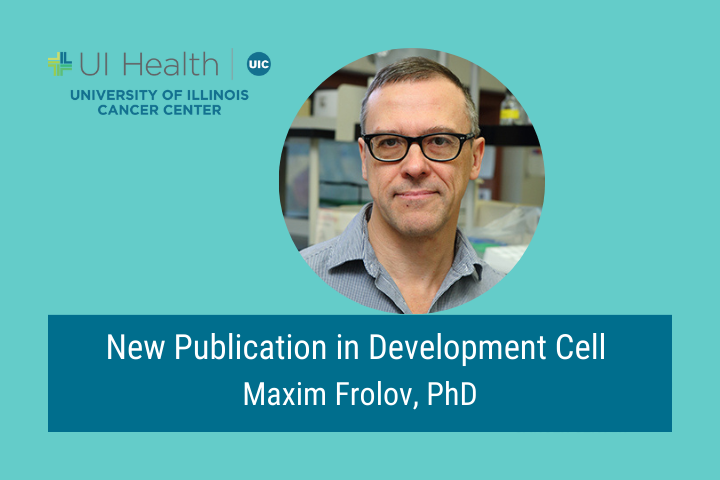
When proliferating cells reach their mature form as part of the eye, kidney or blood, they typically differentiate and stop dividing. But in some cases, genetic errors cause these cells to turn back the clock and dedifferentiate — losing their final identity and regaining the ability to proliferate. This phenomenon can result in tumors, and pathologists often use the extent of dedifferentiation to assess the aggressiveness of a cancer.
Read in Developmental Cell
In a new paper published by Developmental Cell, UIC researchers used single-cell genomics to identify a key factor in this process. By carefully examining how two tumor suppressor pathways interact in the eye of the fruit fly, a team led by University of Illinois Cancer Center member Maxim Frolov, PhD, pinpointed the cellular elements responsible for dedifferentiation. Frolov is part of the Cancer Center’s Cancer Biology research program.
